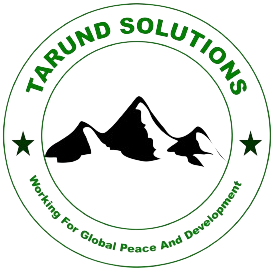TARUND iNSTITUTE
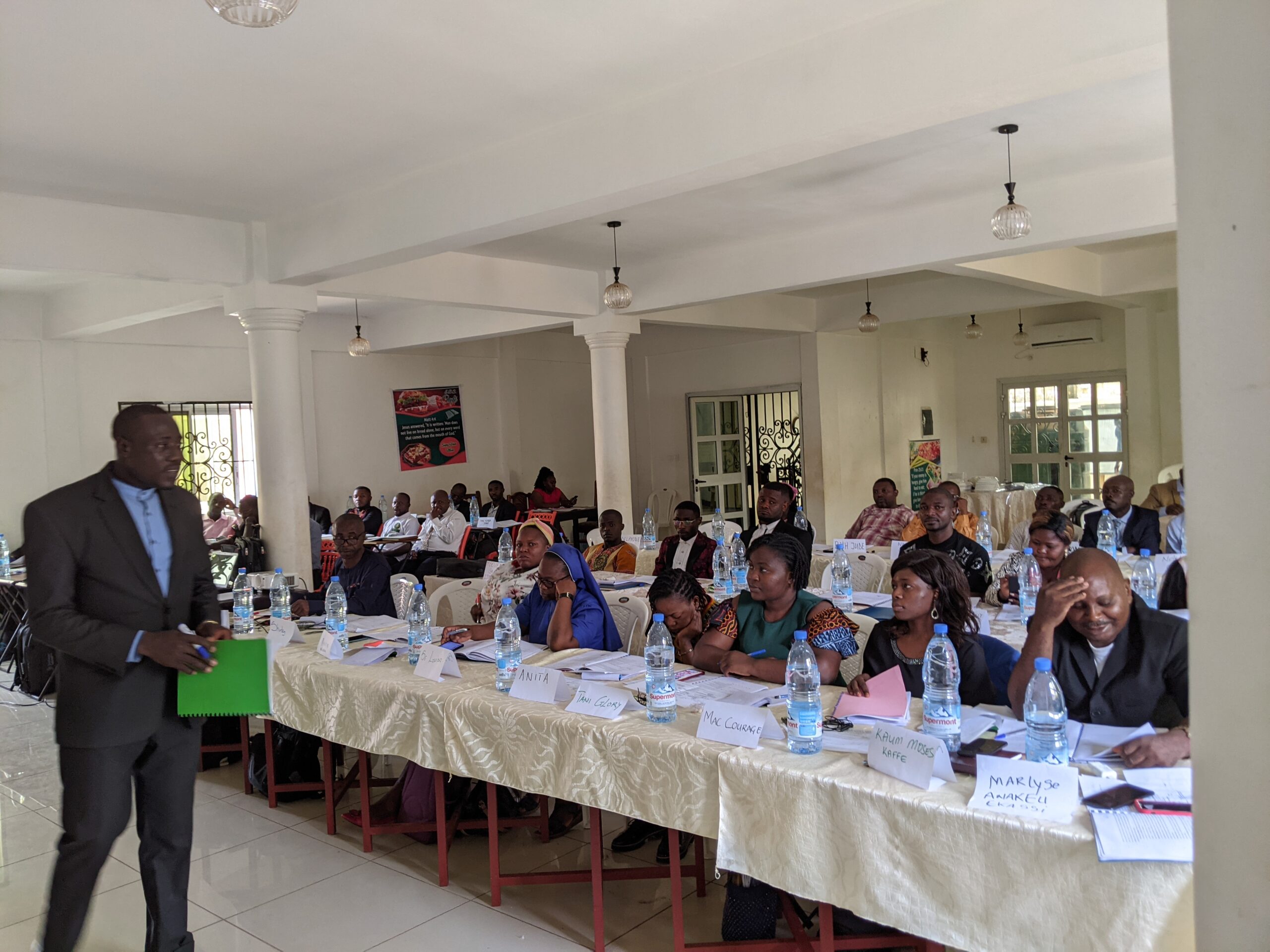

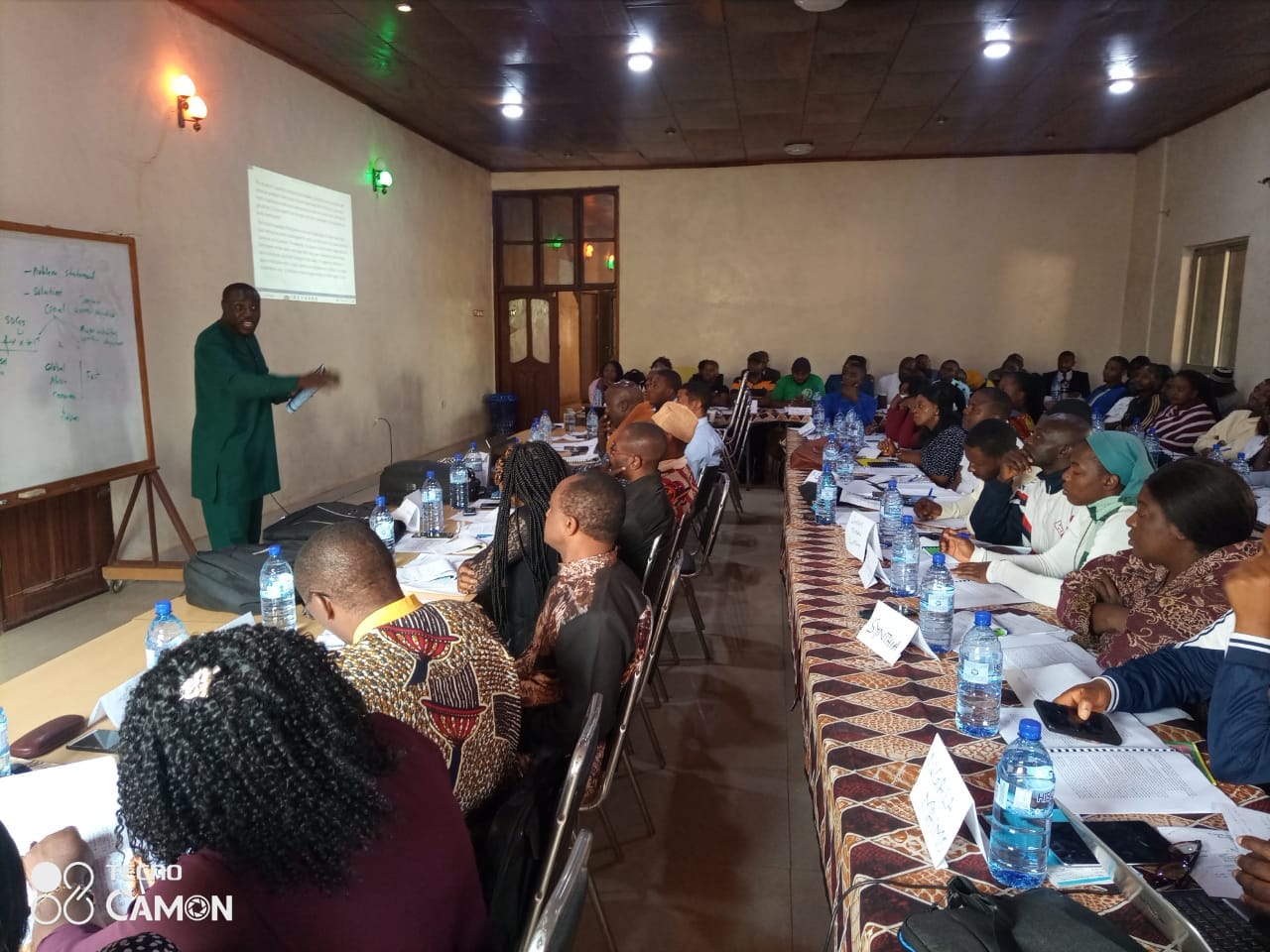

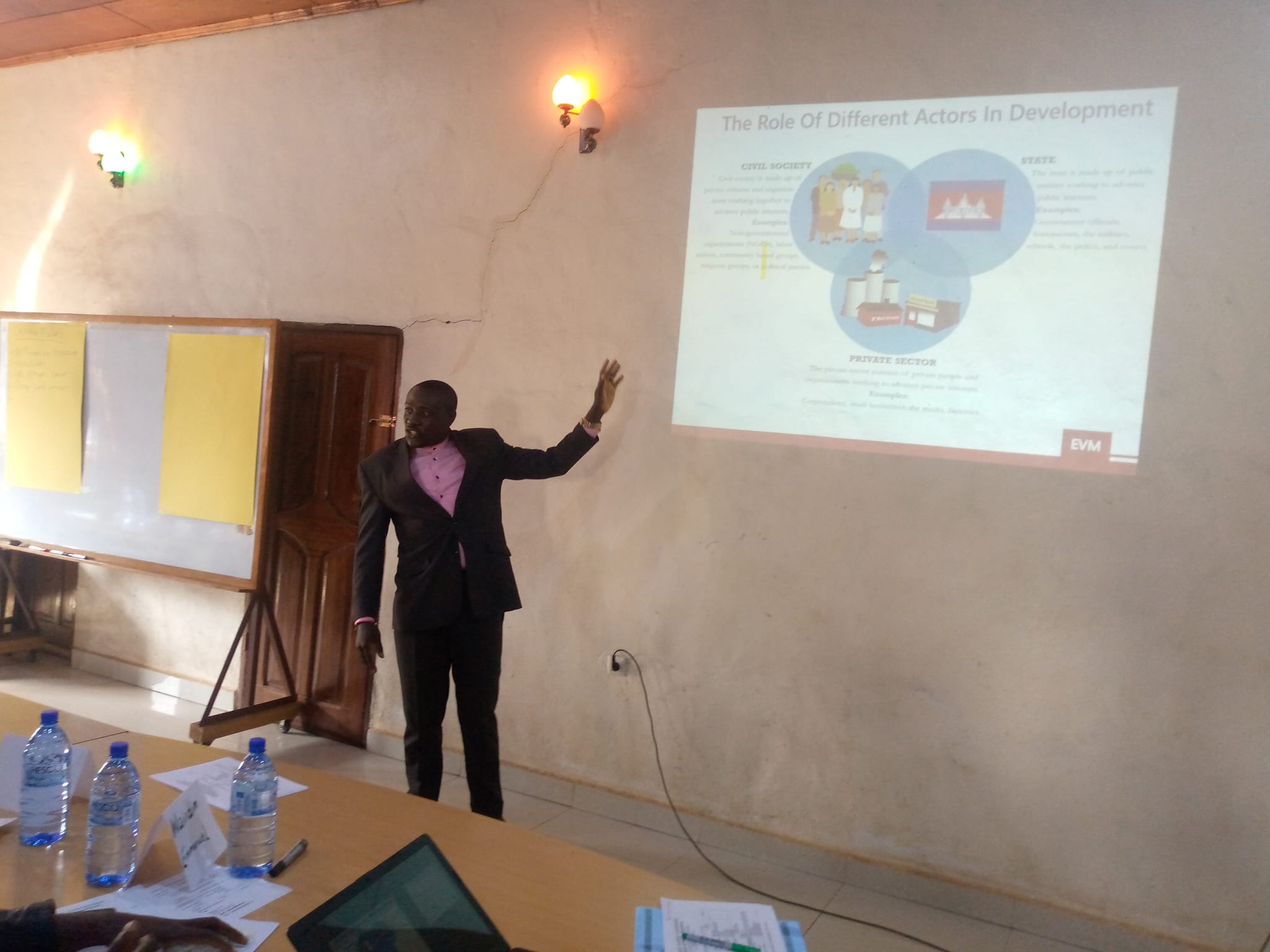
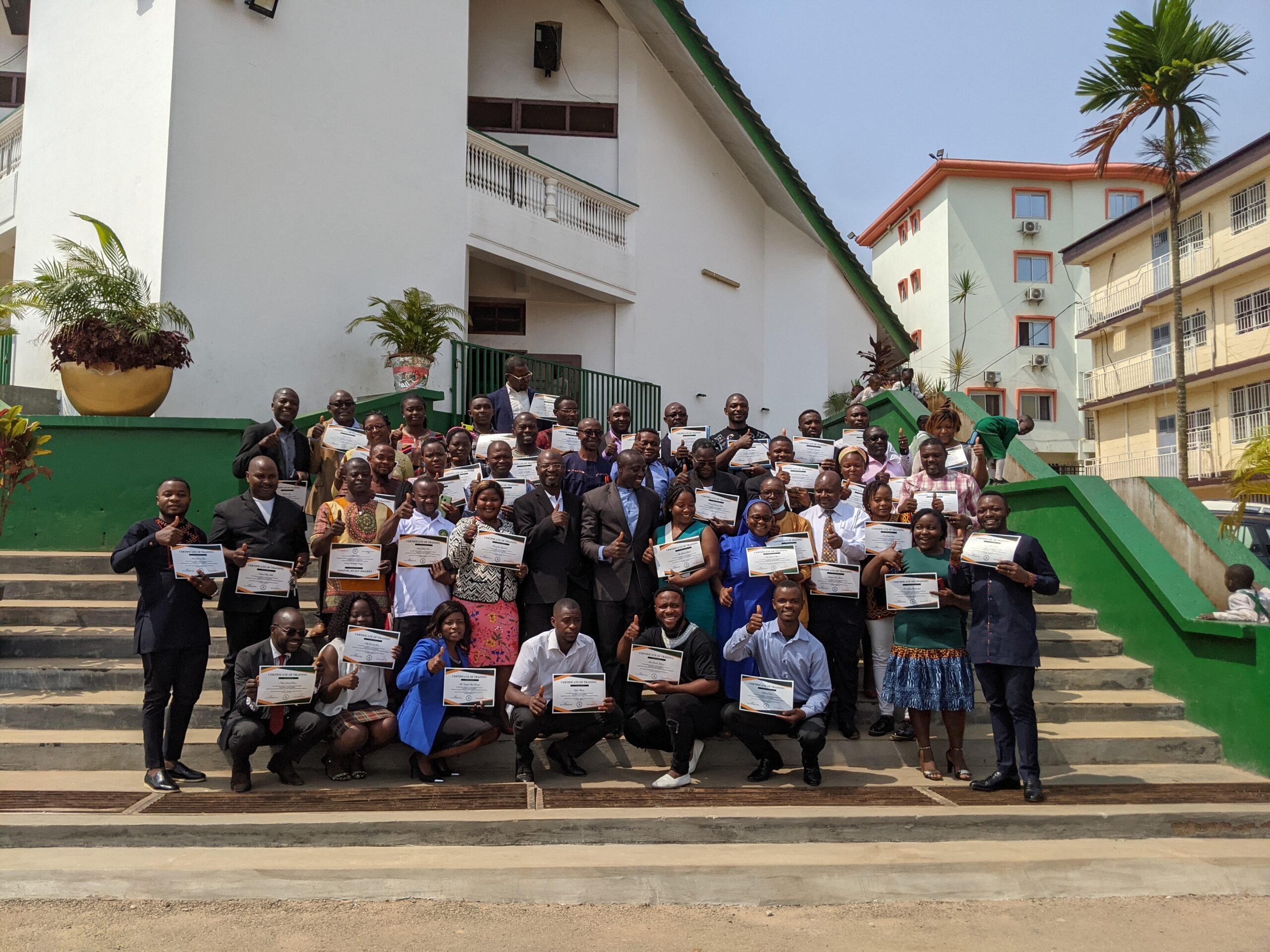






TARUND Certified Development Professional
TARUND Certified Development Professional (TCD-Pro®) is a unique three-in-one Certification designed by experts to build the capacities of participants in three strategic areas (Community Development, Resource Mobilization/ Grant Writing, and PMEAL) crucial for NGO success using world-class resources and seasoned Trainers. A course is validated by the submission of a practical project after the tutorials. Graduates of this program use the TCD-Pro® initials after their names for global recognition as professionals.
At the end of this program, you will be able to:
- Work for Local and International NGOs
- Start and grow an impactful and sustainable NGO
- Become an Development Consultant
You will also:
- Gain skills to build healthier and sustainable communities beginning from problem identification to solution implementation and evaluation.
- Gain skills to design relevant development and humanitarian projects; implement these projects within project resources and constraints; manage these projects in an inclusive, accountable, and sustainable manner; monitor, evaluate, and disseminate the lessons learned from the project.
- Gain skills to succinctly craft the different sections of a typical project proposal.
- Develop a project proposal, which can be adapted to fit real professional contexts.
- Gain skills to plan resource mobilization in a strategic, mission-driven - as opposed to donor- driven - manner.
- Gain skills to design, implement and monitor sustainable resource mobilization activities.
- Gain skills to choose advocacy issues and effective advocacy methods.
- Gain skills to craft effective advocacy messages and work with partners and the press for effective advocacy actions.
- Gain skills to market your organization and build organizational credibility.
- Nurture a spirit of innovation and creativity.
- Gain interpersonal skills for teamwork.
Professional Certificate Training in Community Development and Advocacy
Master a proven model for building healthier and sustainable communities beginning from problem identification to solution implementation and evaluation.
Evaluation: For this course to be validated, a student must write and submit a satisfactory practical project for a specific community using the six-phase model taught in the course from problem identification to solution implementation and evaluation.
Professional Certificate Training in Resource Mobilization and Grant Writing
Become creative and savvy in using multiple approaches and techniques to raise funds and all other resources needed for your organization’s work and projects.
Evaluation: For this course to be validated, a student must write and submit a satisfactory project management plan for a real or hypothetical project integrating all project management knowledge areas.
Professional Certificate Training in Project Planning, Management, Monitory, Evaluation, Accountability and Learning (PMEAL)
Master all the Knowledge Areas necessary to effectively plan, manage, monitor, and evaluate Development and Humanitarian Projects
Evaluation:For this course to be validated, a student must write and submit a satisfactory project proposal integrating all the typical sections of a project proposal and Resource Mobilization Plan.
Training Fact Sheet | |
Training and Certification Cost | USD 500$ Per Program/Course
USD 1,300$ for all 3 Programs (TCD-Pro) |
Training Format | Online: online sessions (zoom)
Onsite: Bamenda, Cameroon |
Training Duration | Each program lasts for 4 months
Classes are held for 2 months and evaluations for 2 months |
Sessions and Order of Courses | We run 3 sessions a year, January, May, September
Community Development (January - March)
Resource Mobilization (May-August)
PMEAL (September - December) |
Training Schedule | Classes are held only on Saturdays and Sundays (1-5 pm)
This gives us 8 hours of classes a week |
Entry Requirements | Anyone with an interest or experience in Development and Humanitarian work |
Training Package
| Quality colour handouts, school ID card, alumni network, internship assistance, durable end-of-course certificate |
Application Form




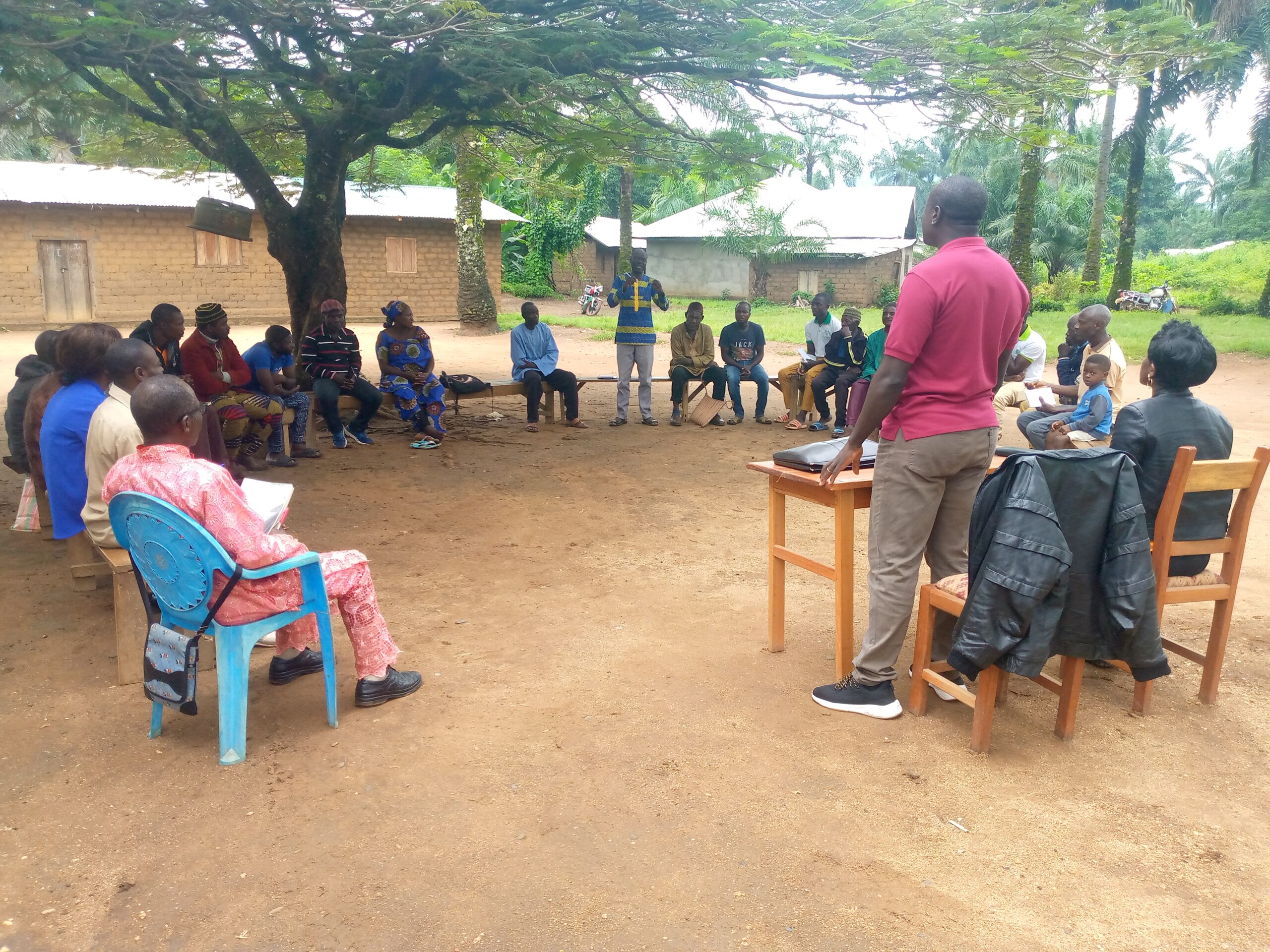



Professional Certificate Training in Community Development and Advocacy
Master a proven model for building healthier and sustainable communities beginning from problem identification to solution implementation and evaluation.
Building healthier cities and communities involves local people working together to transform the conditions and outcomes that matter to them. That work demands an array of competencies, such as community assessment, planning, mobilization, intervention, advocacy, evaluation, and marketing successful efforts.
In this course, students will master a proven model for building healthier communities. This framework involves a dynamic and iterative process with six phases, and related competencies, associated with facilitating community change and improvement.
In this course, students will master a proven model for building healthier communities. This framework outlines a dynamic and iterative process with six phases, and related competencies, associated with facilitating community change and improvement.
Module 1: Understanding Community Context
- Understanding and Describing the Community
- Developing a Plan for Assessing Local Needs and Resources
- Collecting Information About the Problem
- Analyzing Community Problem
- Analyzing Root Causes of Problems: The "But Why?" Technique
Module 2: Collaborative Planning
- VMOSA (Vision, Mission, Objectives, Strategies, Action Plans): An overview
- Proclaiming Your Dream: Developing Vision and Mission Statements
- Creating Objectives
- Developing Successful Strategies: Planning to Win
- Developing an Action Plan
- Identifying Strategies and Tactics for Reducing Risks
- Promoting Coordination, Cooperative Agreements, and Collaborative Agreements Among Agencies
- Developing Multi-sector Collaborations
Module 3: Developing Leadership and Enhancing Participation
- Developing a Plan for Building Leadership
- Servant Leadership: Accepting and Maintaining the Call of Service
- Developing a Plan for Increasing Participation in Community Action
- Promoting Participation Among Diverse Groups
- Methods of Contacting Potential Participants
- Developing a Plan for Staff Hiring and Training
- Developing a Plan for Involving Volunteers
- Providing Supervision for Staff and Volunteers
- Conducting Effective Meetings
Module 4: Community Action and Intervention
- Strategies for Community Change and Improvement: An Overview
- Designing Community Interventions
- Adapting Community Interventions for Different Cultures and Communities
- Developing a Plan for Advocacy
- Organizing Study Circles
- Registering Voters
- Organizing Public Demonstrations
Module 5: Evaluating Community Initiatives
- Our Evaluation Model: Evaluating Comprehensive Community Initiatives
- A Framework for Program Evaluation: A Gateway to Tools
- Developing an Evaluation Plan
- Measuring Success: Evaluating Comprehensive Community Initiatives
- Gathering and Using Community-Level Indicators
Module 6: Promoting and Sustaining the Initiative
- Understanding Social Marketing: Encouraging Adoption and Use of Valued Products and Practices
- Working with the Media
- Making Community Presentations
- Using Principles of Persuasion
- Creating a Website
- Achieving and Maintaining Quality Performance
- Developing a Plan for Financial Sustainability
- Strategies for Sustaining the Initiative
- Applying for a Grant: The General Approach
Evaluation
For this course to be validated, a student must write and submit a satisfactory practical project for a specific community using the six-phase model taught in the course from problem identification to solution implementation and evaluation
Training Fact Sheet | |
Training and Certification Cost | USD 500$ Per Program/Course
USD 1,300$ for all 3 Programs (TCD-Pro) |
Training Format | Online: online sessions (zoom)
Onsite: Bamenda, Cameroon |
Training Duration | Each program lasts for 4 months
Classes are held for 2 months and evaluations for 2 months |
Sessions and Order of Courses | We run 3 sessions a year, January, May, September
Community Development (January - March)
Resource Mobilization (May-August)
PMEAL (September - December) |
Training Schedule | Classes are held only on Saturdays and Sundays (1-5 pm)
This gives us 8 hours of classes a week |
Entry Requirements | Anyone with an interest or experience in Development and Humanitarian work |
Training Package
| Quality colour handouts, school ID card, alumni network, internship assistance, durable end-of-course certificate |
Application Form






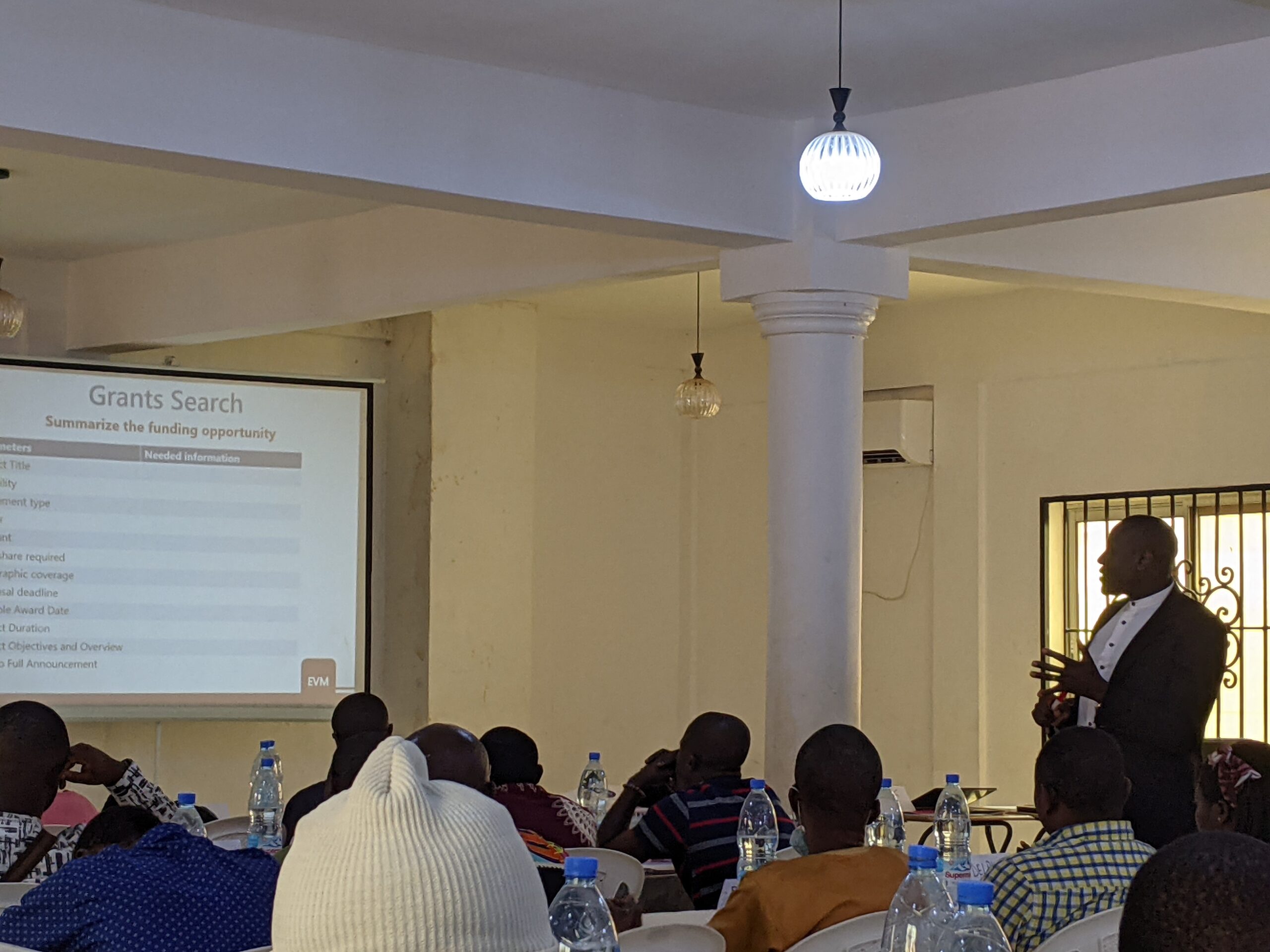
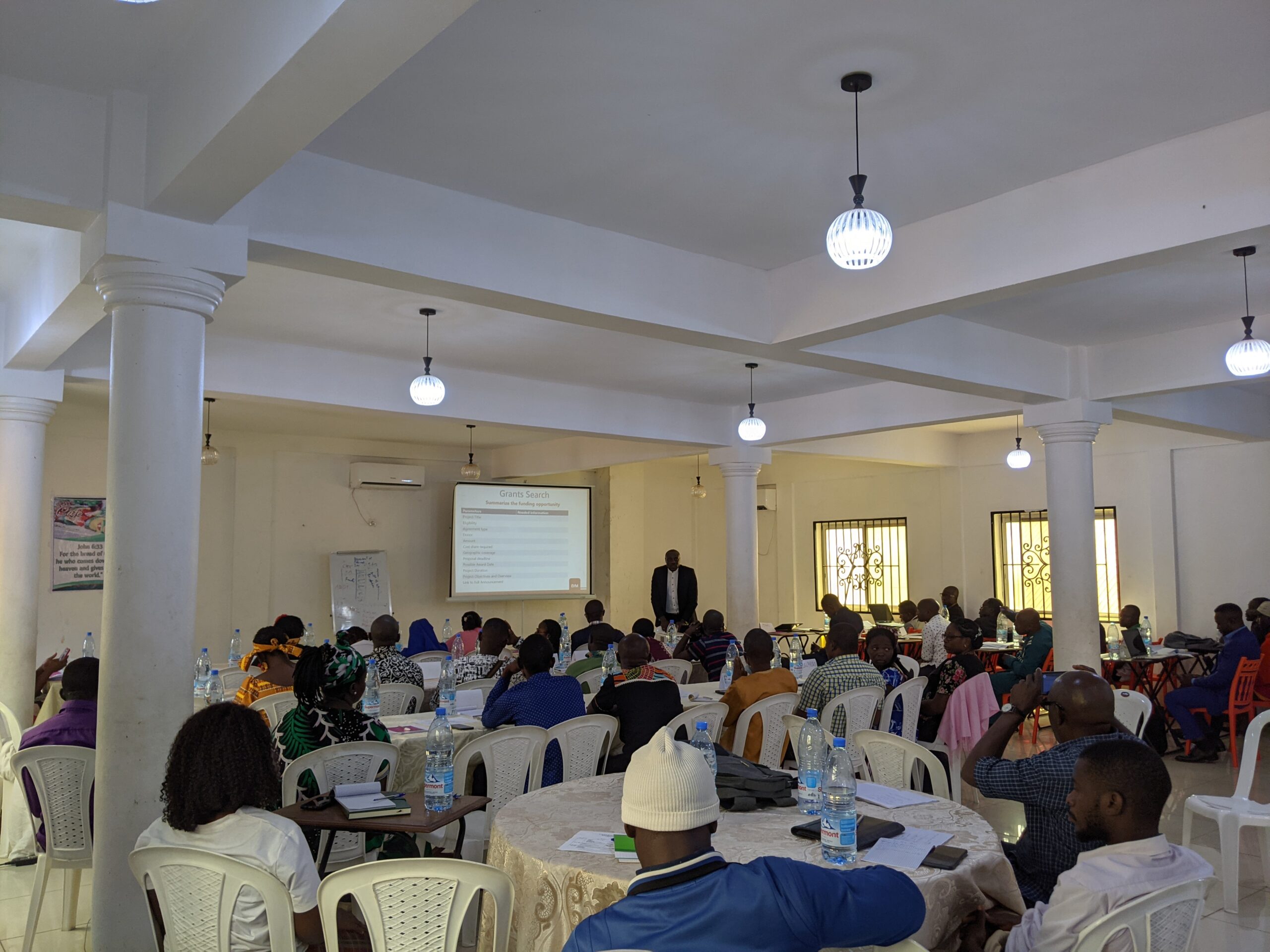
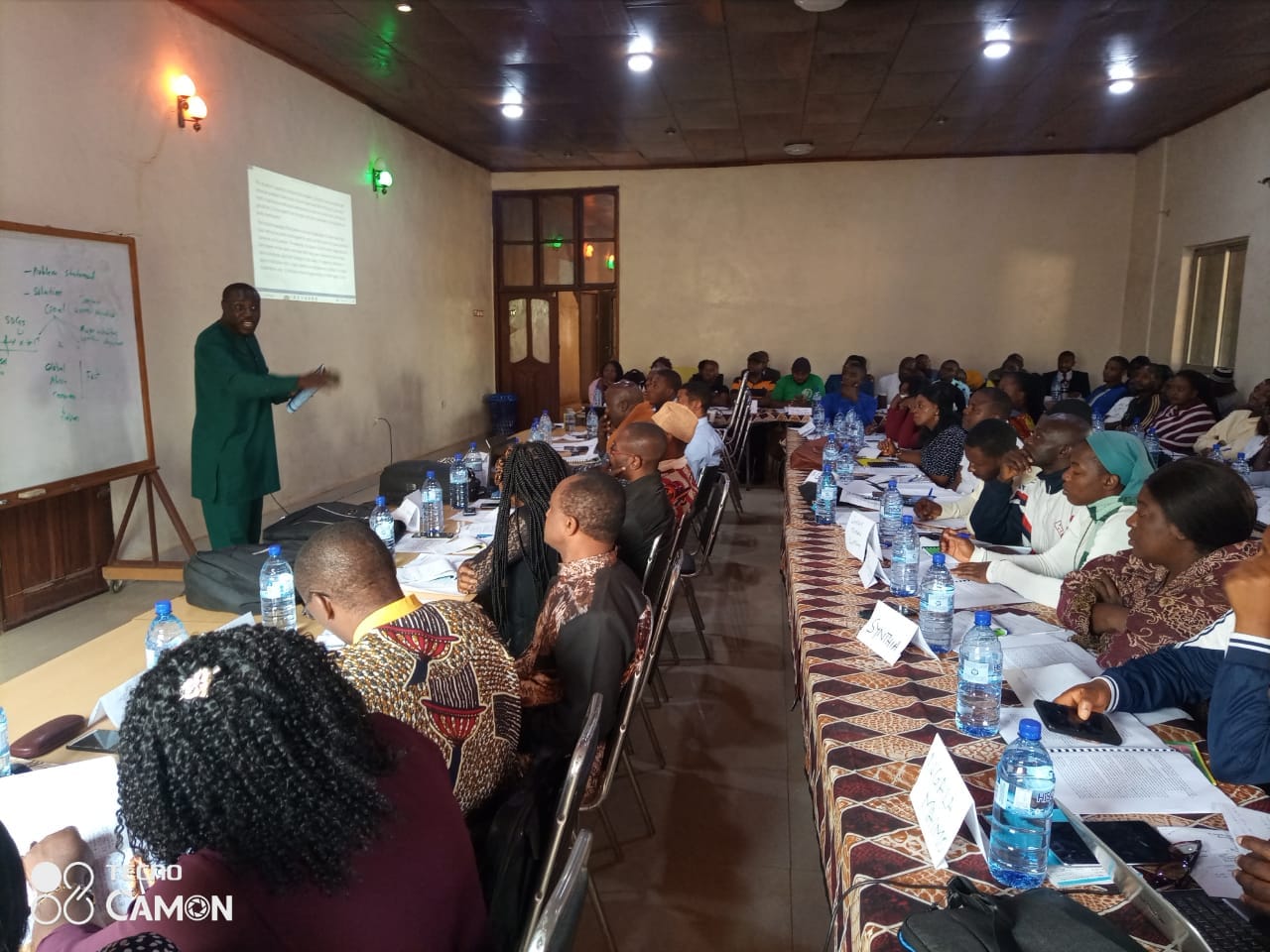
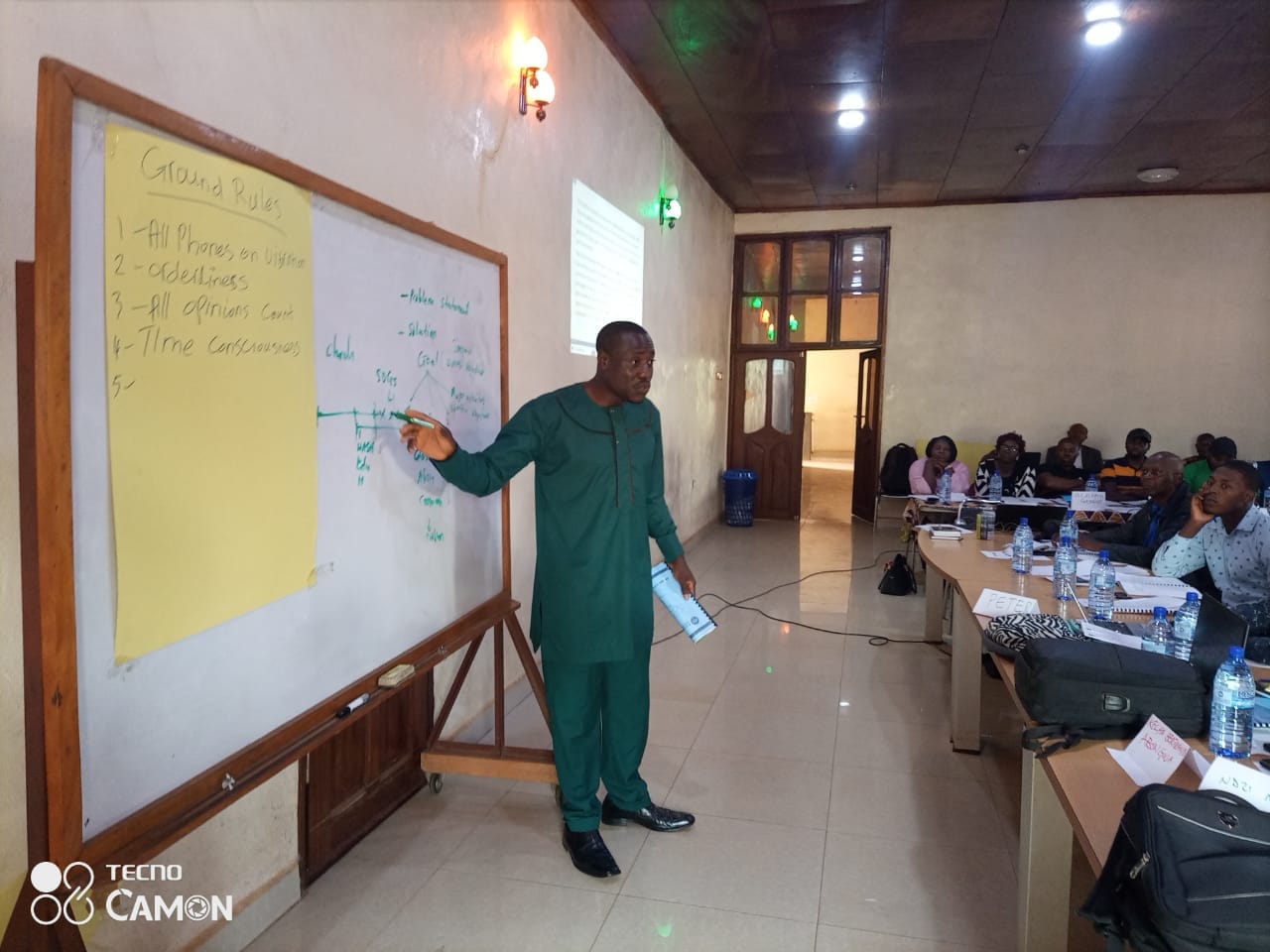

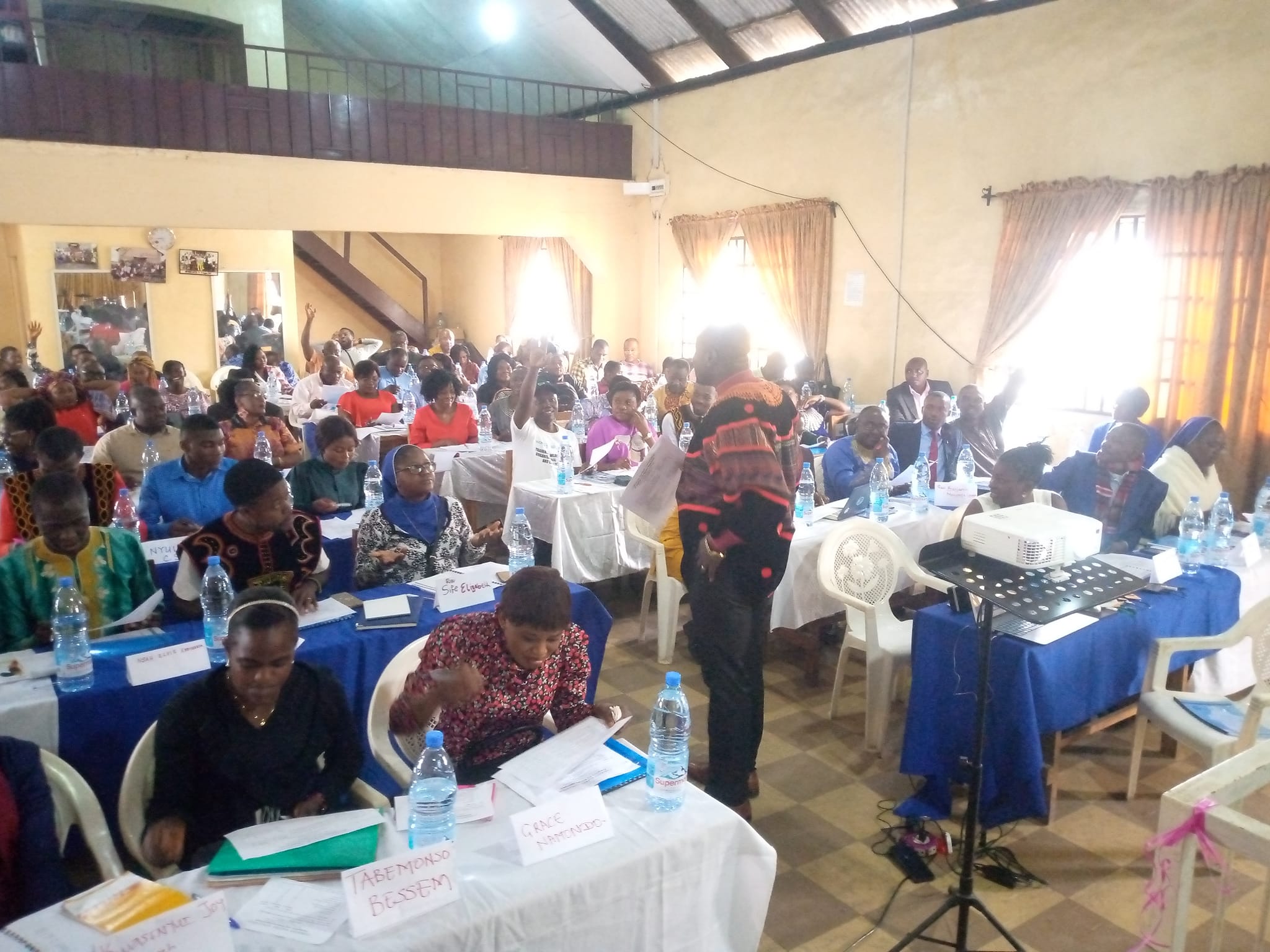

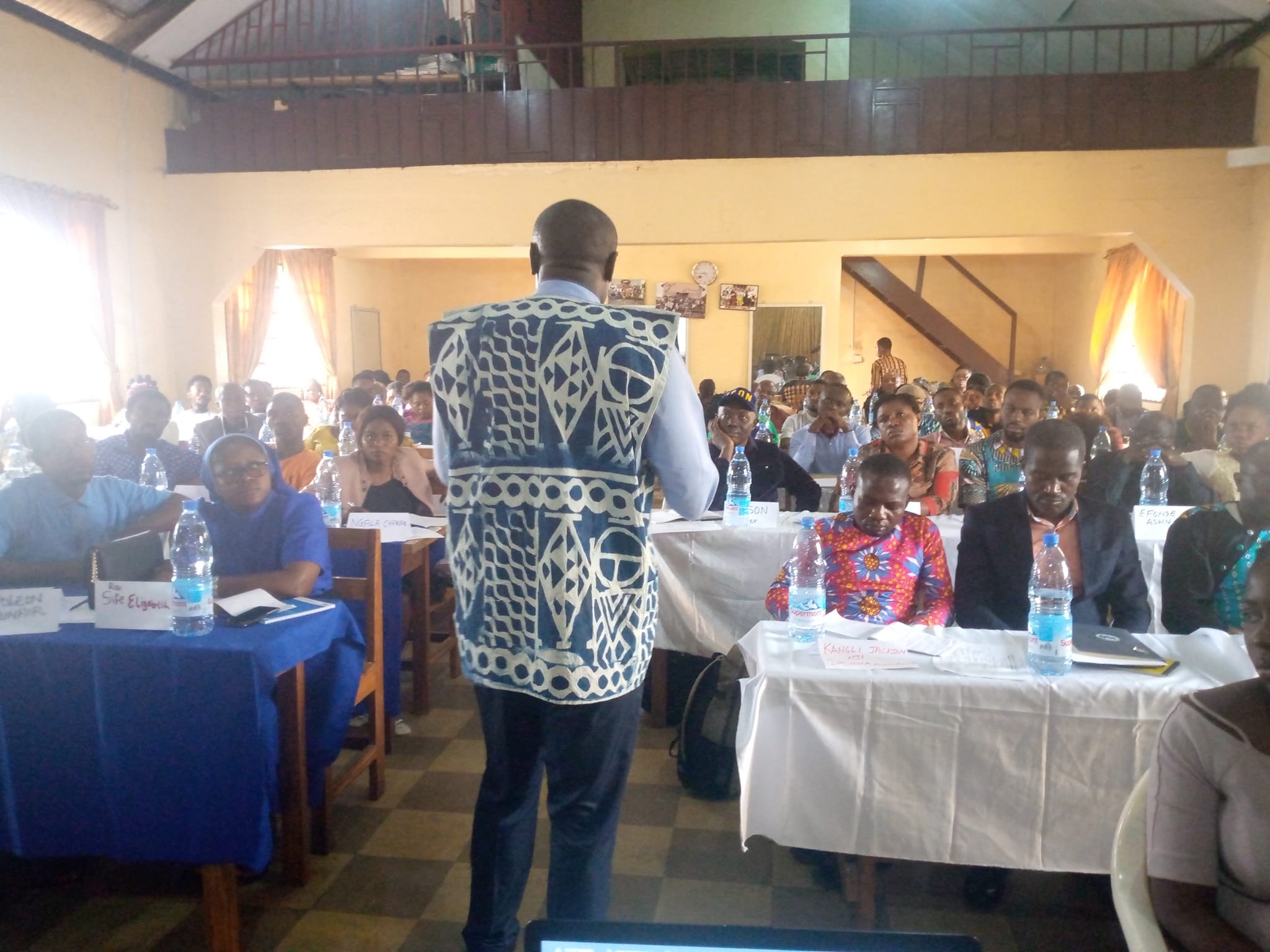
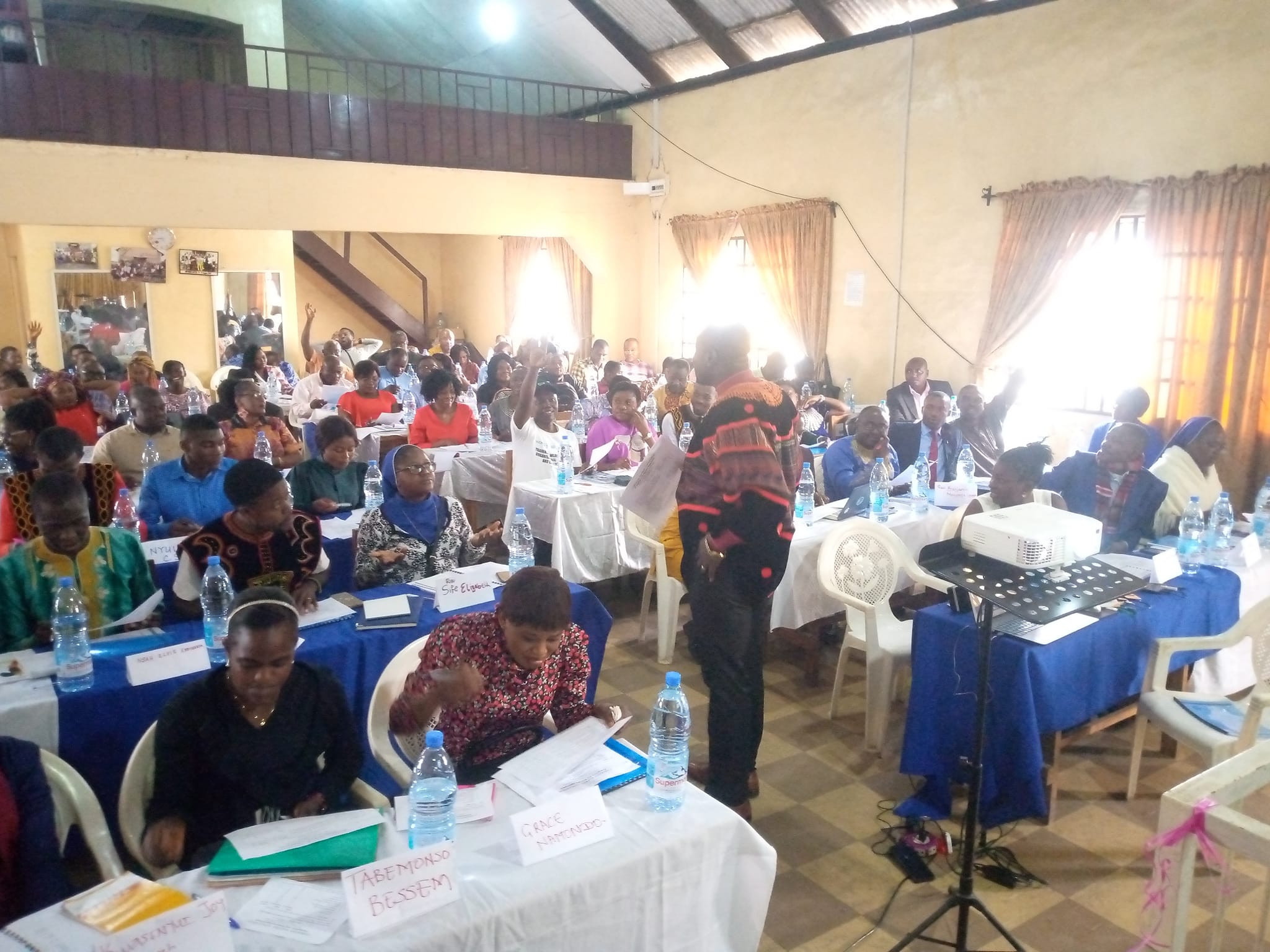
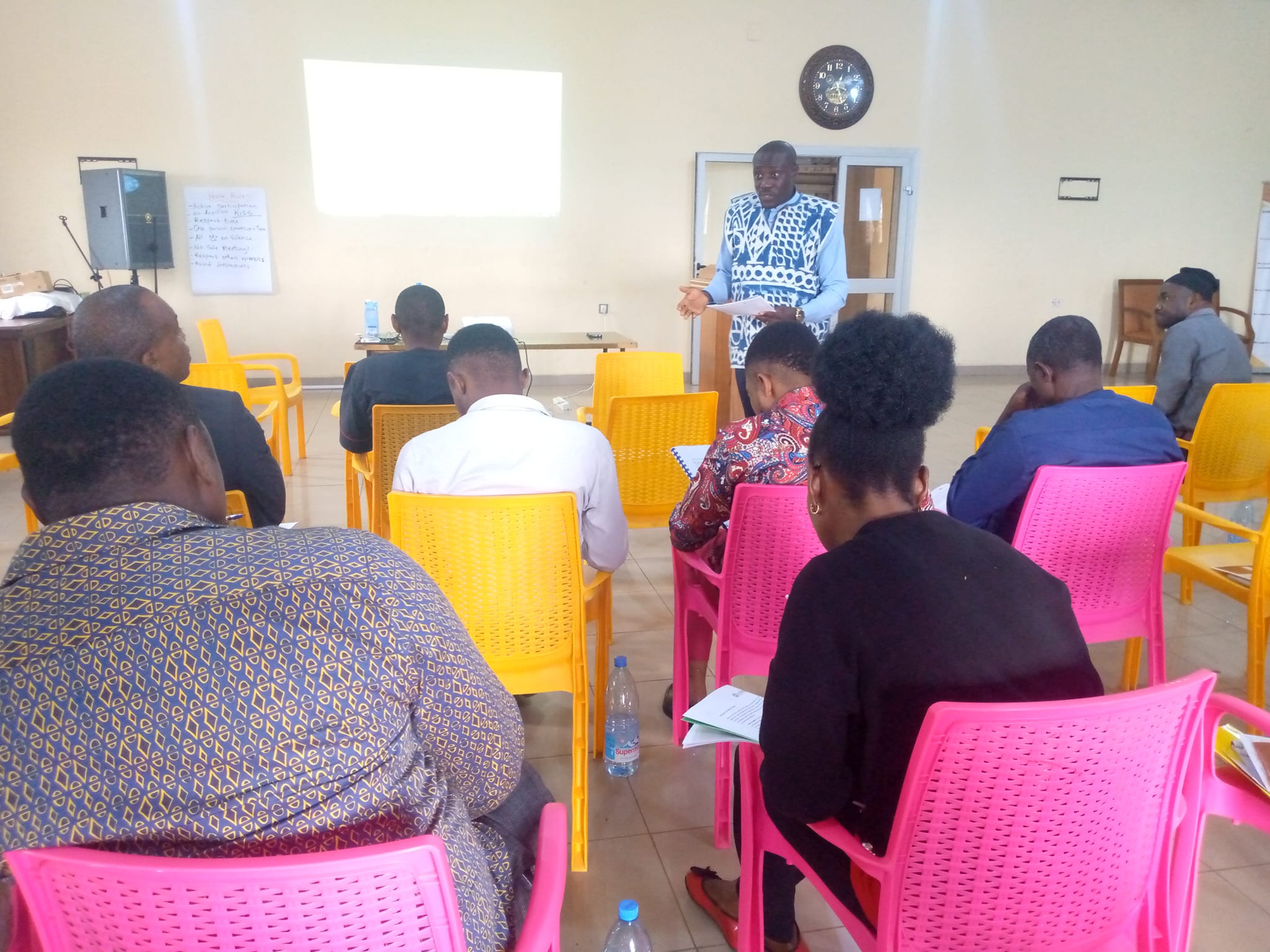

Professional Certificate Training in Resource Mobilization and Grant Writing
Become creative and savvy in using multiple approaches and techniques to raise funds and all other resources needed for your organization’s work and projects
Today, most NGOs chase after funds rather than change lives. Human, financial, and material resources are necessary for all organizations to function and achieve their mission.
At the end of this program, students will gain knowledge and skills to be creative in raising funds and all other resources needed for their organization’s work and projects through strategies such as Events, Direct Mail, Earned Income, Crowd Funding, Grant Writing, etc.
In the domain of grant writing, students will be able to craft a clear and compelling project proposal with clarity on technical sections like the Logical Framework, Work plan, M&E Framework, and Budget.
At the end of this training, each trainee would have written a complete project proposal for themselves.
Module 1: Understanding Resource Mobilization
Module 2: The Importance of Diversifying Funding Sources
Module 3: Why local Resource Mobilization is preferable over foreign?
Module 4: Reviewing the Organizational Strategic Plan
Module 5: Determining Resource Mobilization Targets
Module 6: Identifying and Broadening the Stakeholder Group
Module 7: Developing Key Messages
Module 8: Selecting an effective Resource Mobilization strategy: Grants Search, Special Events, Direct Mail, Earned income, Major Gifts
Module 9: Other Effective Resource Acquisition Strategies
Module 10: Monitoring Resource Mobilization Activities
Module 11:Gearing up for Resource Mobilization
Module 12: Guided Practical Grant Writing Sessions covering all the typical sections of a project proposal
Evaluation
For this course to be validated, a student must write and submit a satisfactory project proposal integrating all the typical sections of a project proposal and Resource Mobilization Plan.
Training Fact Sheet | |
Training and Certification Cost | USD 500$ Per Program/Course
USD 1,300$ for all 3 Programs (TCD-Pro) |
Training Format | Online: online sessions (zoom)
Onsite: Bamenda, Cameroon |
Training Duration | Each program lasts for 4 months
Classes are held for 2 months and evaluations for 2 months |
Sessions and Order of Courses | We run 3 sessions a year, January, May, September
Community Development (January - March)
Resource Mobilization (May-August)
PMEAL (September - December) |
Training Schedule | Classes are held only on Saturdays and Sundays (1-5 pm)
This gives us 8 hours of classes a week |
Entry Requirements | Anyone with an interest or experience in Development and Humanitarian work |
Training Package
| Quality colour handouts, school ID card, alumni network, internship assistance, durable end-of-course certificate |
Application Form



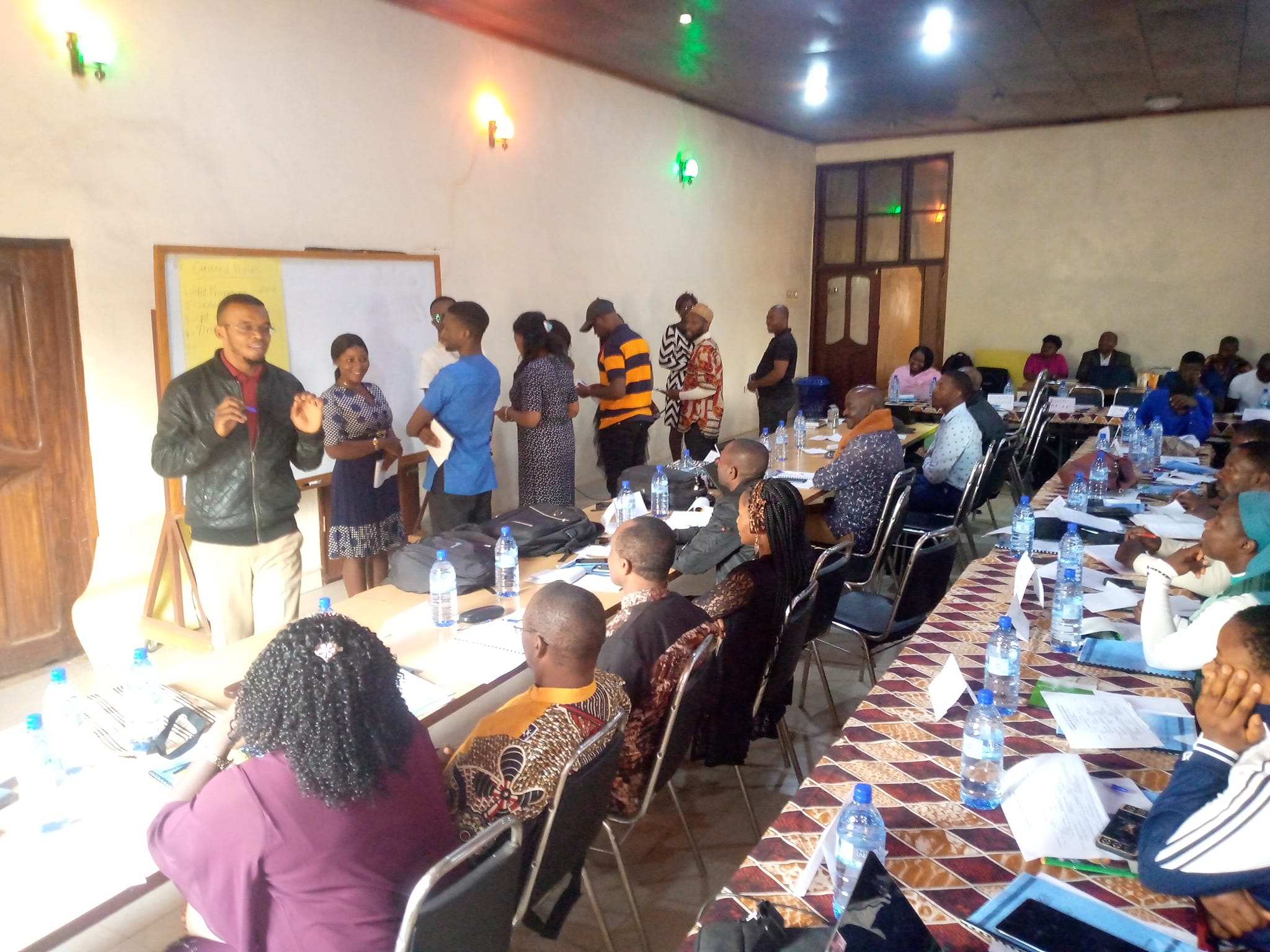
Professional Certificate Training in Project Planning, Management, Monitory, Evaluation, Accountability and Learning (PMEAL)
Master all the Knowledge Areas necessary to effectively plan, manage, monitor, and evaluate Development and Humanitarian Projects
What should you look out for when designing a project? How can you design an impactful, inclusive, and sustainable project? How can you know whether a project was successful or not? How can you learn from a project? How do you manage limited project resources and competing projects constraints such as budget, scope, quality, risk, etc. to achieve desired project outcomes?
This training is designed to answer these questions and also to build the skills needed in the use of some standard tools in project designing, management, and MEAL.
At the end of this course, students should be able to design relevant development and humanitarian projects; implement these projects within project resources and constraints; manage these projects in an inclusive, accountable, and sustainable manner; monitor, evaluate, and disseminate the lessons learned from the project.
In this course, students will master all the Knowledge Areas necessary to effectively plan and manage Development Projects.
Module 1: Introduction to Development Project Management
Module 2: Project Management Glossary of Terms
Module 3: The Project Management Processes
Module 4: The Project Management Cycle
Module 5: Project Management Organizational Structures
Module 6: Organizational Project Management
Module 7: Project Scope Management
Module 8: Project Schedule Management
Module 9: Project Team Management
Module 10: Project Budget Management
Module 11: Project Risk Management
Module 12: Project Quality Management
Module 13: Roles, Responsibilities and skills in Project Management
Module 14: Project Information Management
Module 15: Project Information Management Systems
Evaluation
For this course to be validated, a student must write and submit a satisfactory project management plan for a real or hypothetical project integrating all project management knowledge areas.
Training Fact Sheet | |
Training and Certification Cost | USD 500$ Per Program/Course
USD 1,300$ for all 3 Programs (TCD-Pro) |
Training Format | Online: online sessions (zoom)
Onsite: Bamenda, Cameroon |
Training Duration | Each program lasts for 4 months
Classes are held for 2 months and evaluations for 2 months |
Sessions and Order of Courses | We run 3 sessions a year, January, May, September
Community Development (January - March)
Resource Mobilization (May-August)
PMEAL (September - December) |
Training Schedule | Classes are held only on Saturdays and Sundays (1-5 pm)
This gives us 8 hours of classes a week |
Entry Requirements | Anyone with an interest or experience in Development and Humanitarian work |
Training Package
| Quality colour handouts, school ID card, alumni network, internship assistance, durable end-of-course certificate |
Application Form






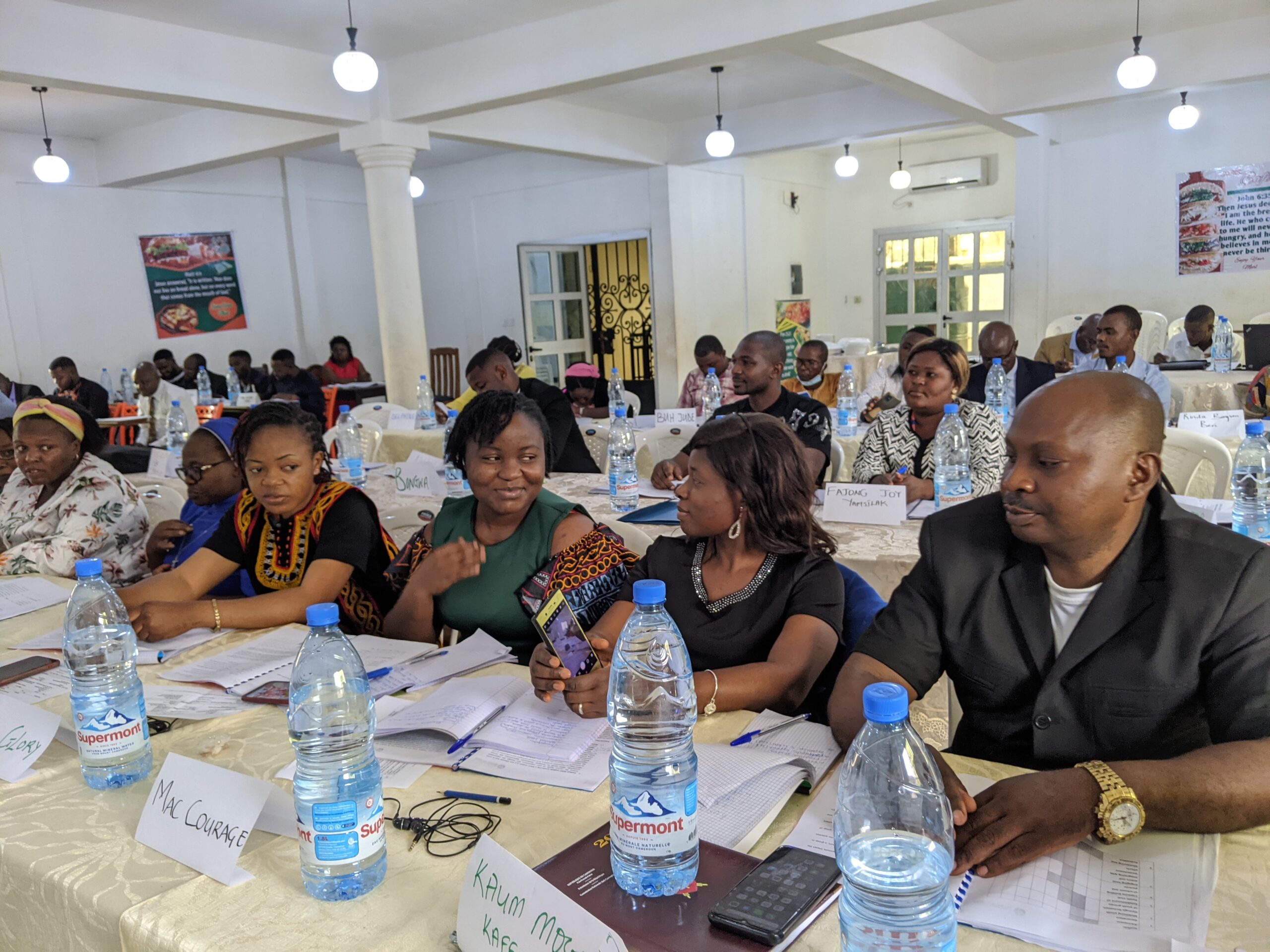
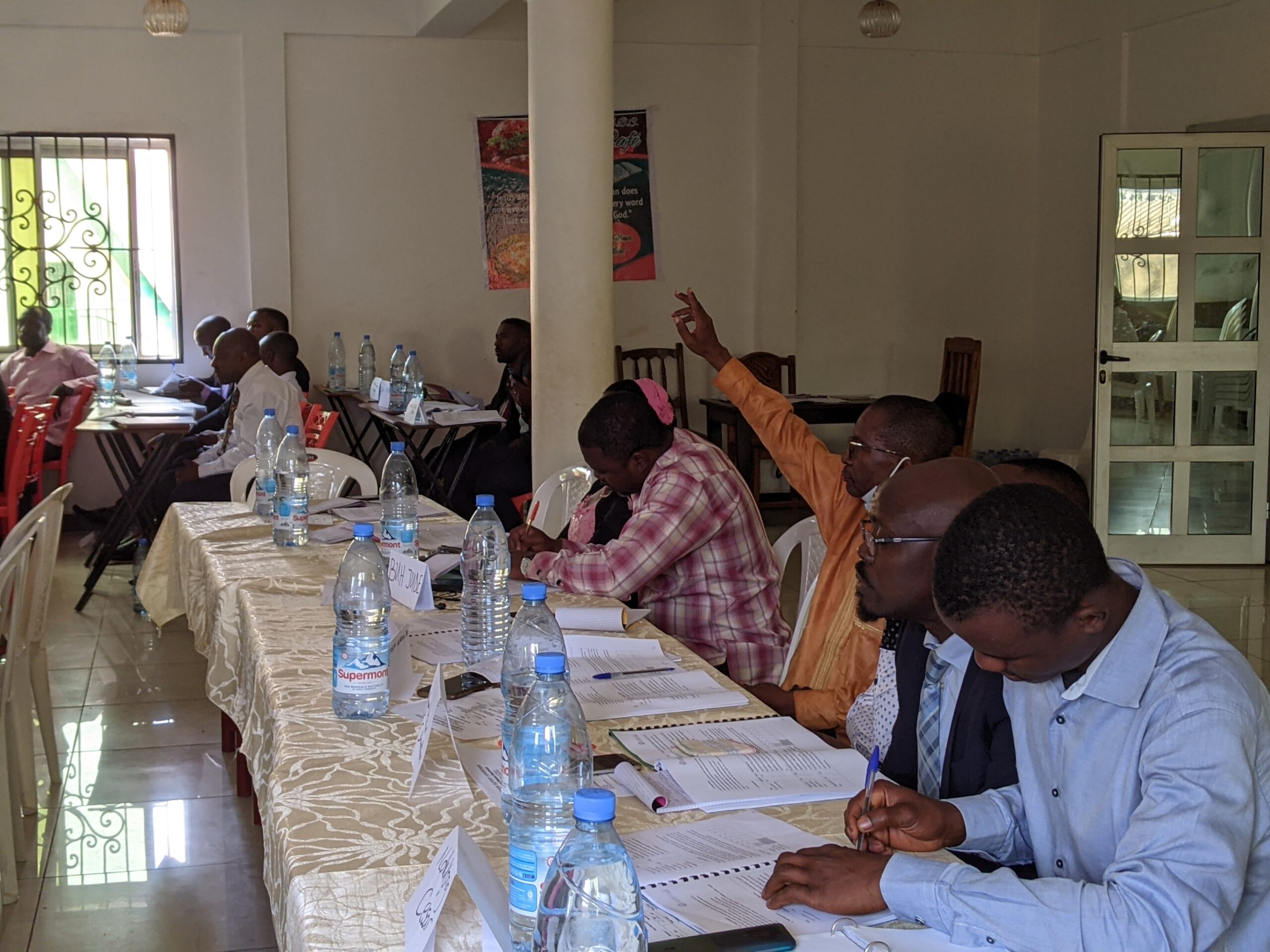

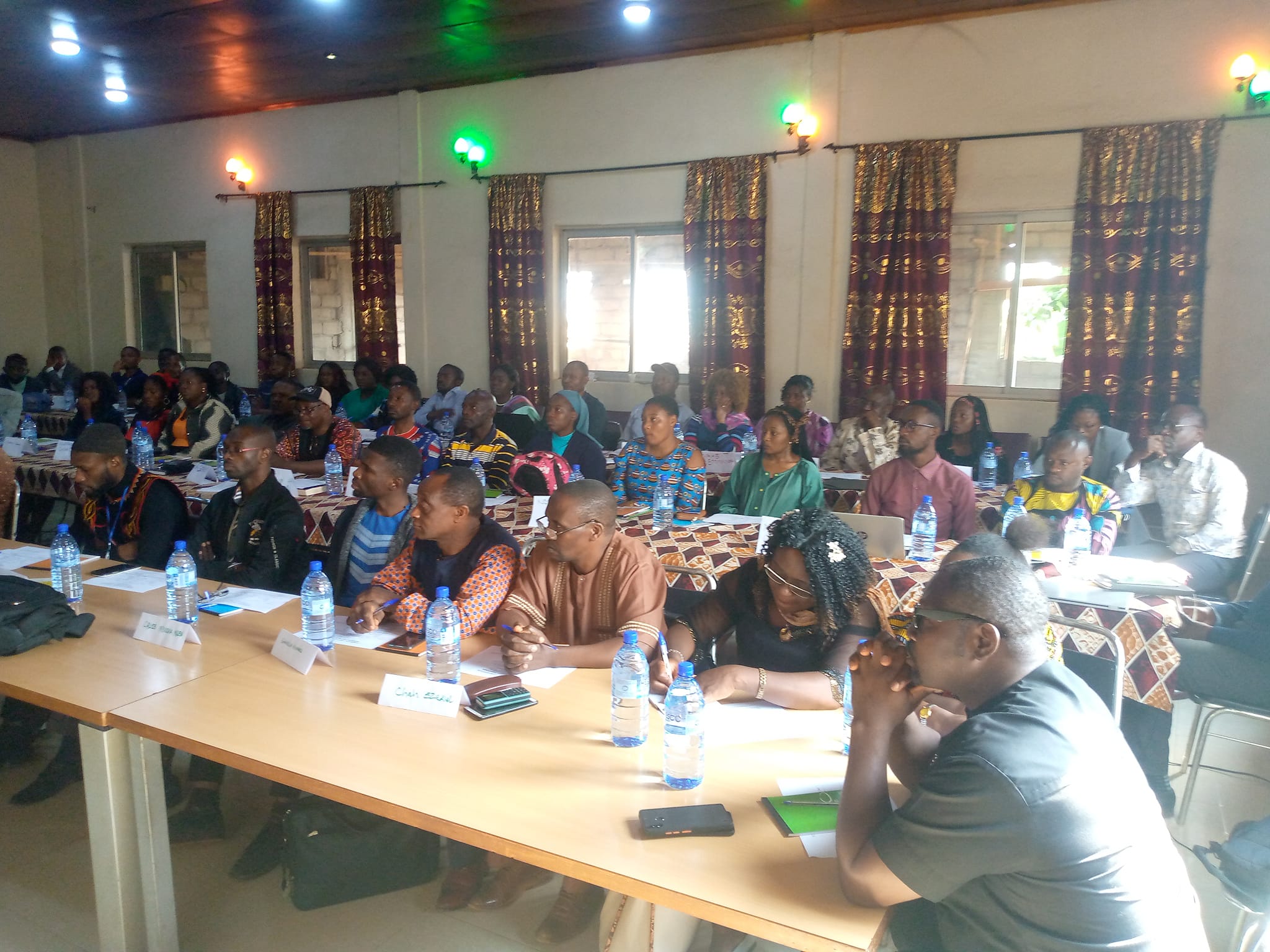

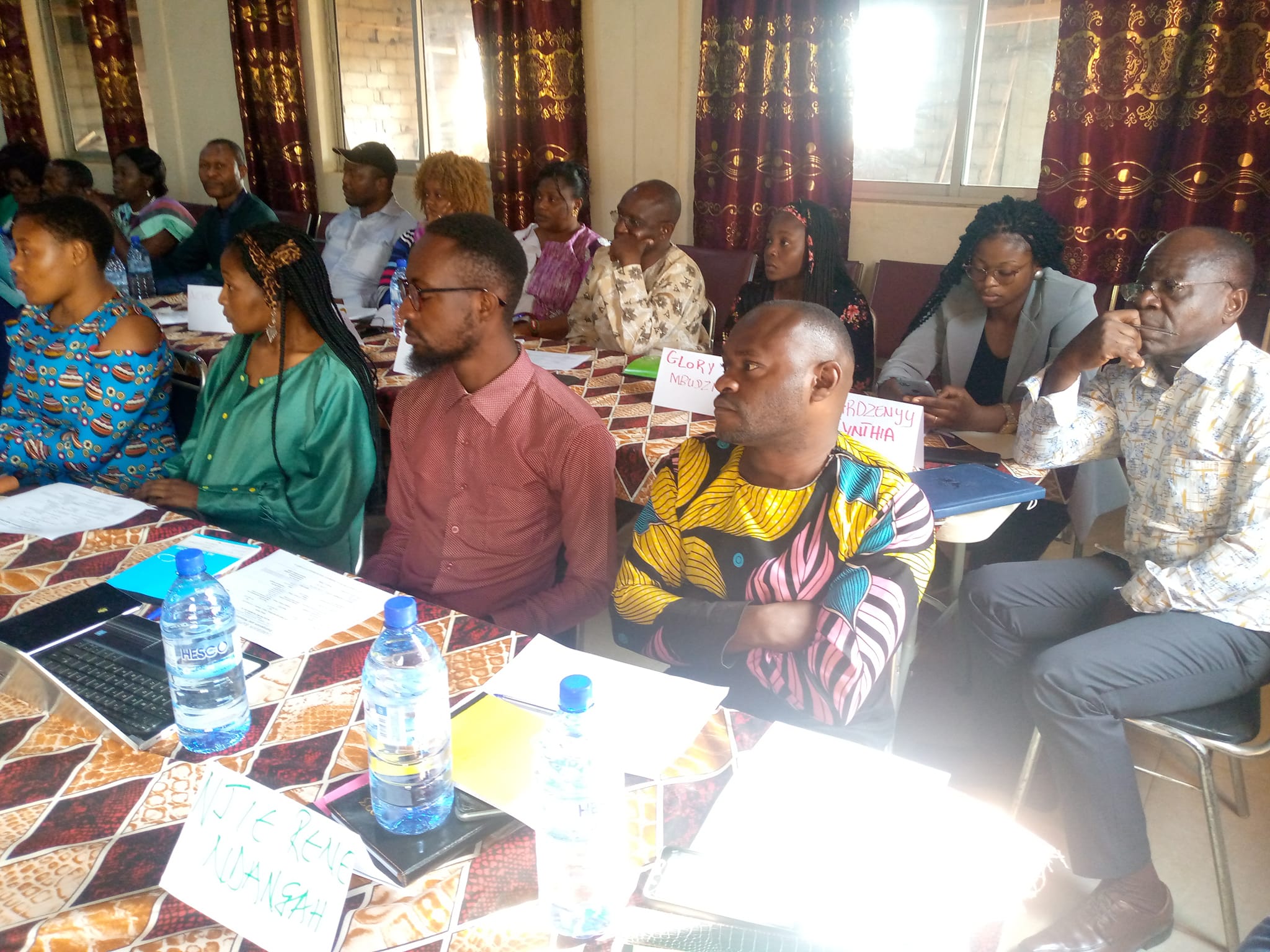
Cooperate Trainings
It is always important and beneficial to invest in employee training programs because they are tied to so many metrics. But what’s more important is investing in the right training programs for employees that aligns with organizational objectives.
A corporate training program is a structured and strategic initiative designed to enhance the skills, knowledge, and competencies of employees within an organization. These programs aim to improve employee performance, productivity, and job satisfaction while aligning individual development with the organization’s goals.
Corporate training programs cover a wide range of topics and types of employee training, including technical skills, leadership development, communication, project management, compliance, and more.
These initiatives may be delivered through various training methods, such as in-person workshops, virtual sessions, eLearning platforms, on-the-job training, or a combination of these approaches.
By investing in employee development, organizations foster a culture of continuous learning and equip their workforce with the tools to adapt to changing business demands, driving overall success and growth.
As per a survey of the Linkedin, 94% of the employees would remain in a company if the companies provided appropriate corporate training programs. Organizations must take care of the learning requirements of employees, evaluate training needs, and implement training programs.
Organizations will gain the following advantages by regularly training their employees using any of Cooperate Training Program:
1. Boosts Employee Motivation and Moral
Employees’ inadequacy of motivation to work has long been a concern. Corporate training allows us to develop a supportive workplace and illustrates to the employees that they are appreciated. Because not every employee is motivated, so they can work harder for the organization.
2. Cost-Efficient
Employing a new employee is always an expenditure for the organization. Investing in the experienced workforce has shown that ROI of the corporate training is always beneficial when compared to new recruits. Training can considerably reduce the organizations expenditures as there is no requirement for a wage package, medical expenses, fringe benefits, etc, for a new employee.
3. Enhanced Decision-Making and Leadership Skills
An organization can benefit from the training that can enhance decision-making and infuses leadership skills in its workforce. Good decision-making can improve the organization’s efficiency, which can give rise to higher profitability and customer service.
4. Greater Employee Retention
Organizations that will invest big in the training have a 53% less rate of attrition. Employee retention is directly associated with delivering the corporate training. It provides the employees with the impression that their job is essential to the organization’s success and that the corporation is ready to invest time and money to complete the task properly.
5. Aids Overcome Weakness
Training can disclose an individual's shortcomings and gaps and help you handle them. For example, Employee 1 can be the best data analyst but not good at communication, and Employee 2 can be an amazing communicator but does not have data analytics skills; thus, these two employees can benefit from each other’s skills and build on them to raise their performance.
6. Improved Productivity
Corporate training and development will have a significant effect on employee productivity. Productivity can be risen due to efficient and well-organized training programs that enhance task management, target necessary skills, inspire confidence, and clean up employee expectations. Productivity is a crucial objective in today’s organizations, and efficient training may help them achieve the maximum productivity regularly.
7. Developing Corporate Culture
Good training coordinates strategy and values. Rising above the fundamentals displays that the organization wants to invest in its workforce in the long term.
8. Decreased Turnover
Research have suggested that nowadays, professionals require more than just a salary. Young professionals specifically value the employers that provide flexibility and professional development opportunities. They will shift jobs if they are not satisfied with their current job. The inclination of job shifts will be expensive for the employers. Turnover can be preventable; thus, corporations have the financial incentive to keep workers productive and engaged.
Leadership Training
Leadership training involves targeted learning initiatives designed to enhance the skills and qualities of individuals in developing them into leadership roles.
These programs offer comprehensive training modules focused on various aspects of effective leadership, including communication, decision-making, problem-solving, team management, emotional intelligence, and strategic thinking.
Through a combination of workshops, scenario training, case studies, and interactive sessions, participants develop the competencies required to lead teams, drive organizational growth, and adapt to dynamic business environments. Leadership training programs aim to cultivate confident and empathetic leaders who can inspire and motivate their teams, navigate challenges, and contribute to the overall success of the company.
Some of specific areas of our leadership training include but not limited to:
- Diversity training for executives
- Situational leadership
- Executive communication
- Women in leadership
- Performance leadership
- Positive leadership
- Data-driven leadership
- Negotiations and conflict management
- Executive decision making
- Emerging leader development
- Marketing leadership training
- Leading people and teams
- Strategic innovation
- Global business leadership
- Agile leadership
- Executive coaching/career planning
- Leading change
- Design thinking for executives
Project Management Training
Project management training for corporate programs involves structured learning initiatives aimed at equipping individuals with the skills and methodologies necessary to effectively plan, execute, and manage projects within an organization. These programs cover key project management concepts such as defining project scope, setting goals, allocating resources, scheduling tasks, risk management, and communication strategies.
Through a combination of practical exercises, case studies, and hands-on experiences, participants develop the skills needed to lead projects and deliver quality results. The objective of project management training is to empower employees with the tools to handle complex projects, improve efficiency, and contribute to the overall efficiency and success of the organization.
Planning and Facilitating Effective Business Meetings
This training workshop will equip participants with the knowledge to plan, prepare for, participate in, and chair productive meetings. Through interactive activities and group discussion, participants will learn how to utilize meeting time more effectively, determine pre and post meeting deliverables, and identify the roles and responsibilities of the meeting owner and attendees. Participants will also be provided with practical tools for ensuring the effectiveness of meetings, including templates for agendas, action reports, and meeting minutes.
Closing The Sale
Sales is the revenue generation department for an organization, and every lost deal costs an organization revenue. Sales training programs can go a long way in teaching entry-level sales employees negotiation, objection handling, and practical decision-making skills.
Training employees to close the deals focuses on equipping both sales professionals and negotiators with the skills and techniques necessary to successfully finalize business agreements and transactions. These programs cover strategies for building rapport, addressing objections, understanding client needs, negotiating terms, and creating win-win scenarios.
Through simulation training, role-playing, and real-world scenarios, participants practice effective closing techniques and refine their persuasive communication skills. The goal of this type of training is to empower participants with the confidence and expertise to navigate complex sales situations, overcome obstacles, and secure successful outcomes that benefit both the organization and the client.
Presentation Training
Presentation training is designed to enhance employees’ skills in delivering effective and impactful presentations. These programs cover various aspects of presentation delivery, including structuring content, using visual aids, managing nerves, engaging the audience, and handling questions.
Through workshops, practice sessions, and feedback, participants learn how to communicate their ideas clearly, maintain audience interest, and convey their message with confidence. The goal of presentation training is to empower individuals to become compelling and persuasive speakers, capable of delivering memorable presentations that inform, influence, and inspire both internal and external stakeholders within the corporate setting.
Effective Team Communication Training
Effective team communication is crucial for successful team collaboration and goal alignment. Team communication training focuses on improving verbal and nonverbal communication, active listening, clarity in conveying messages, and the ability to provide and receive constructive feedback. Through workshops, role-playing, group discussions, and real-life scenarios, participants learn to foster open dialogue, resolve conflicts, and collaborate more cohesively.
This training offers multiple benefits such as team building, increased productivity, and efficient problem-solving. Your team members will also be able to resolve conflicts better and send out effective business communication in emails and messages.
Pro Tip: Implementing collaborative training programs within the organization enables your employees to share their knowledge and expertise, teaching and learning from one another which helps improve overall communication.
The Power of Negotiation
Negotiation is a difficult skill and can be mastered over time with practice. Negotiation training programs allow employees to practice negotiation in an environment where stakes are low and learn how to be influential without clouding their judgment.
An effective negotiator brings a sense of power to the table and drives the conversation in their favor. Negotiation is a highly crucial skill set in situations like third-party collaborations, partnerships, and sales organizations.
Emotional Intelligence Training
Emotional intelligence is instrumental in an individual’s success, and a training program for developing emotional intelligence can provide your leadership team with the emotional skills to become better leaders. By training your leaders to be emotionally intelligent, you make them self-aware and improve their levels of compassion. These training programs positively modify your team’s daily interactions by forming more meaningful relationships and collaborations.
Unconscious Bias Training
People have unintentional biases towards others and can unknowingly cultivate certain work habits and prejudices, leading to managers treating employees differently in terms of opportunities at the workplace.
An unconscious bias training program can help managers be more self-aware and reflective while making important decisions. It will reduce the incidents of favoritism and provide every employee with a fair work environment to grow.
Conflict Resolution
Workplace conflicts reduce productivity and lead to poor workplace satisfaction if not resolved in time. Conflict resolution training is mandatory to empower employees to solve their differences without escalations and third-party mediation.
A conflict resolution training program allows employees to fill their interpersonal skills gap and take responsibility for their behavior. It also helps them recognize conflicts early on before they become an issue.
Time Management Training
Time management training in corporate programs focuses on equipping participants with effective strategies and skills to optimize their use of time, enhance productivity, and achieve a better work-life balance.
These programs cover techniques for setting priorities, setting realistic goals, overcoming procrastination, delegating tasks, and utilizing time-saving tools.
Through workshops, interactive exercises, and practical tips, participants learn how to allocate their time efficiently, handle multiple tasks, and manage distractions. The goal of time management training is to empower employees to make better use of their time, meet deadlines, reduce stress, and ultimately contribute to improved individual and team performance within the organization.
Compliance Training
Compliance training is an industry-specific new employee training mandated by legislation or regulatory bodies to familiarize employees with regulations and laws that govern an organization or a particular job role. These training initiatives are mandatory to minimize risk, ensure workplace safety, and improve the overall work environment for employees.
Decision-making Training
Decision-making often becomes difficult when your managers are in a tight spot. Therefore, you need to train them for effective decision-making in a safe and low-risk environment.
With well-designed decision-making training, you can delegate more decisions and be confident that you can rely on your managers to make informed decisions in crucial situations.
Remote Work Training
Remote work training in corporate programs is designed to equip employees with the skills and strategies necessary to excel in a virtual work environment. These programs cover various aspects of remote work, including time management, communication tools, virtual collaboration, self-motivation, and maintaining work-life balance.
Through interactive workshops, online modules, and practical exercises, participants learn how to effectively manage their tasks, leverage digital platforms for communication, build strong virtual relationships, and adapt to the unique challenges of remote work.
The aim of remote work training is to enable employees to remain productive, engaged, and connected while working remotely, contributing to the overall success of the organization in a flexible work environment.
Stress Management
Hectic work schedules can often lead to technostress for your employees, resulting in decreased productivity. Stress management training aims to equip employees with strategies and techniques to cope with and reduce workplace stress effectively.
These programs cover a range of stress-related topics, including recognizing stress triggers, time management, relaxation techniques, mindfulness, and fostering a healthy work-life balance.
Intercultural Communication Training
Intercultural communication training is designed to enhance employees’ abilities to effectively interact and collaborate with individuals from diverse cultural backgrounds. These programs cover various aspects of intercultural communication, including cultural awareness, nonverbal cues, understanding cultural norms, adapting communication styles, and avoiding misunderstandings.
Through cross-cultural simulations, case studies, and interactive discussions, participants develop the skills needed to navigate multicultural work environments, build rapport, and foster inclusive and respectful interactions. The goal of intercultural communication training is to enable employees to bridge cultural gaps, facilitate effective teamwork, and contribute to a harmonious and globally-minded workplace within the corporate context.
Diversity, Inclusion, and Equity (DEI) Training
Diversity, inclusion, and equity (DEI) training aims to cultivate a workplace culture that values diversity, fosters inclusion, and promotes equitable opportunities for all employees. These programs cover topics such as unconscious bias, cultural sensitivity, promoting gender equality, LGBTQ+ inclusivity, and creating accessible environments.
The goal of DEI training is to empower employees to embrace differences, contribute to an environment of respect and belonging, and drive positive organizational change in alignment with ethical and social responsibilities.
Child Protection and Safeguarding Training
Awareness and Prevention of Sexual Exploitation, Harassment and Abuse in the Workplace
Policy Implementation Compliance Training
Application Form





Industry Certifications
Skills have become the global currency of the 21st-century economies! In a world where competition for jobs, pay increases, and academic success continues to increase, certifications offer hope because they are a credible, third-party assessment of one’s skill and knowledge for a given subject.
What is PMP Certification?
The PMP acknowledges candidates skilled at managing the people, processes, and business priorities of professional projects. The Project Management Institute (PMI), the world’s leading authority on project management, created the PMP to recognize project managers who have proven they have project leadership experience and expertise in any way of working.
To obtain PMP certification, a project manager must meet certain requirements and then pass a 180-question exam. The PMP exam was created by project leaders for project leaders, so each test question can be related to real-life project management experiences.
PMP certification validates that you are highly skilled in:
- Motivating people and teams through all phases of a successful project.
- Using predictive, agile and hybrid approaches to determine which way of working is best for each project.
- Highlighting the success of a project and its impact on overall strategic organizational goals.
How to Get Your PMP Certification
Prepare for the Exams (we run PMP preparatory classes in our Bamenda Commercial Avenue Campus in Cameroon)
Apply For the Exams
Take the Exams (online)
Certified Management Accountant Quick Facts
- CMA stands for Certified Management Accountant.
- CMAs specialize in management accounting, strategic management, and business decision-making.
- CMA certification requirements include earning a bachelor’s degree, having two years of relevant work experience, and passing the CMA exam.
- The CMA exam costs about $1,300 and it takes at least six years to become fully certified.
- CMAs earn a higher average salary than CPAs and CFAs.
- A CMA exam review course can help you pass the exam on your first try.
We run CMA preparatory classes in our Bamenda Commercial Avenue Campus in Cameroon
The Organization Development Certification
This program is designed to empower participants with the knowledge and skills needed to excel in the field of Organization Development (OD).
This program revolves around the practical application of OD’s Action Research Model for Change Management. Participants collaborate with organization leaders to identify specific needs, assess the readiness of the organization for change, harmonize its culture and systems, conduct comprehensive needs assessments, engage stakeholders and employees, craft action plans, and develop implementation strategies using a whole-systems-based approach.
Completion of the program bestows upon participants the coveted title of Organization Development Certified Professional (ODCP).
TARUND Certified Development Professional (TCD-Pro®)
TCD-Pro is a unique three-in-one Certification designed by TARUND iNSTITUTE to build the capacities of participants in three strategic areas (Community Development, Resource Mobilization/ Grant Writing, and PMEAL) crucial for NGO success using world-class resources and seasoned Trainers.
A course is validated by the submission of a practical project after the tutorials.
Graduates of this program use the TCD-Pro® initials after their names for global recognition as professionals.
Apply Now
Certification in Humanitarian Logistics (CHL)
CHL is offered as part of the Fritz Institute/CILT (UK) Humanitarian Logistics Certification Program. It combines best practices in supply chain management and implementation from the humanitarian community, commercial world, and academia. The pioneering program meets the need across the humanitarian sector for accessible, cost-effective training for active logistics professionals, who play a vital role in their organization’s success.
CHL is aimed at people who work (or aspire to work) within humanitarian aid organizations in (or interacting with) supply functions, typically involving warehousing, transport and/or inventory. The self-paced distance learning is designed specifically for those presently working, often in deep field locations, with busy schedules, and require flexibility in their learning schedules. There are no academic pre-requisites. CHL has come to be recognised as the leading programme for logisticians both already working in the field and those who wish to join humanitarian organisations.
The CHL programme consists of seven units:
- Humanitarian Aid Supply Chains
- Warehousing and Inventory
- Procurement
- Transport
- Fleet Management
- Cash Transfer Programming
- Managing the Humanitarian Supply Chain
